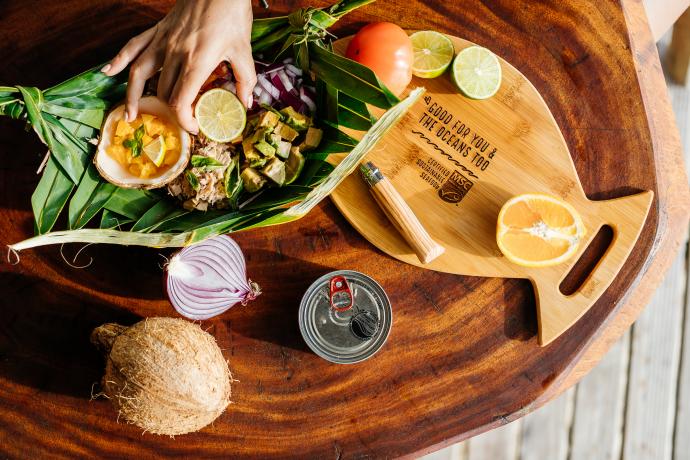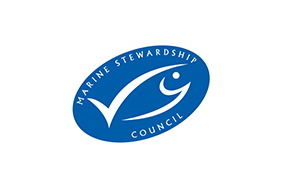
Now Reading
Marine Stewardship Council Report Shows Sustainable Tuna Success as Global Consumer Demand for Tuna Increases
In time for World Tuna Day on May 2, 2020, global non-profit encourages shoppers to look for the MSC blue fish label when purchasing tuna to ensure tuna is around for generations to come
Marine Stewardship Council Report Shows Sustainable Tuna Success as Global Consumer Demand for Tuna Increases
In time for World Tuna Day on May 2, 2020, global non-profit encourages shoppers to look for the MSC blue fish label when purchasing tuna to ensure tuna is around for generations to come
Published 05-01-20
Submitted by Marine Stewardship Council, US
 In time for World Tuna Day on May 2, the Marine Stewardship Council has released a new Sustainable Tuna Handbook that provides a comprehensive guide to sourcing sustainable tuna
In time for World Tuna Day on May 2, the Marine Stewardship Council has released a new Sustainable Tuna Handbook that provides a comprehensive guide to sourcing sustainable tunaSales of certified sustainable tuna have more than doubled in the last five years, according to a new, “Sustainable Tuna Handbook,” published today by the Marine Stewardship Council (MSC), a non-profit whose sole mission is to make sure wild seafood is around forever. According to the report, more than 54,000 tons of tuna were sold with the globally recognised blue MSC label in 2018/19, compared with 21,500 tons in 2015/16. In the U.S., more than 3,500 tons of MSC labeled tuna were sold in 2018/19 fiscal year, compared to 850 tons in 2015/16. The figures for 2019/20 are expected to be even higher.[1]
The coronavirus pandemic has led to a recent surge in demand for canned tuna globally. Google searches for canned tuna are up 50% compared to April 2019, with a 300% year-over-year rise in searches relating to, ‘what to do with canned tuna’. The MSC is urging both producers and consumers to continue their commitment to sustainable tuna as these demands increase. Published to mark World Tuna Day on Saturday May 2, the “Sustainable Tuna Handbook,” provides a comprehensive guide to sourcing sustainable tuna. World Tuna Day is celebrated annually on May 2, and is observed by the United Nations to recognize the ecological and economic importance of tuna.
“Over the past few months, many families have not been able to visit or see the ocean – an inspiration and wonder to us all,” said Bill Holden, the MSC’s global tuna expert. “But the good news is, that even in these difficult times, consumers can continue to make a difference by choosing sustainably-sourced seafood. Although tuna is one of the world’s most widely consumed and popular fish, the reality is that around a third of tuna stocks remain in a fragile state. By buying tuna with the MSC blue fish label, shoppers are playing a part in ensuring tuna stocks are secured for future generations.”
The rapid increase in global sales of MSC labeled sustainable tuna is the result of transformations within the fishing sector. Nearly 30% of global tuna catch is now certified to the MSC’s standards for sustainable fishing, compared with 14% in 2014. These changes have been driven by increasing consumer and retailer demand.
Shifts in global tuna production
The global volume of tuna caught to the MSC’s globally recognized standard for sustainable fishing more than doubled from 700,000 tons in 2014 to 1.4 million tons in September 2019. There are 29 MSC certified tuna fisheries worldwide, compared with just eight in September 2014. In the U.S. there are four MSC certified tuna fisheries. These fisheries employ the globally recognized best practices for sustainable fishing, including minimizing impact on the environment. They also continue to deliver improvements to safeguard tuna stocks and protect important marine species such as sharks, rays and turtles.
Behind these changes are more than 200 companies which trade MSC certified sustainable tuna sold in 41 countries. This includes multinational companies responsible for some of the world’s largest tuna brands, including Chicken of the Sea and Genova (owned by Thai Union). Retailers, including Lidl, Aldi, Walmart, and Whole Foods are leading the way to make MSC certified sustainable tuna easily available to shoppers.
“The surge in popularity of tuna at the end of the last century, either in sushi or in cans, has resulted in a steep growth in the global tuna catch, unsustainable practices and illegal fishing,” said Steven Adolf, author of the recently published book, “Tuna Wars.”
“Due to the ongoing covid-19 crisis, the need for healthy and safe proteins will only increase, adding pressure on our global tuna stocks,” continued Adolf. “Many challenges lie ahead, but fortunately, an increasing number of fishers, retailers and brands are making bold commitments to achieve MSC certification. We must not lose this positive momentum.”
The importance of sustainable tuna to us all
Tuna has a huge social and economic value in addition to providing a high protein, low-fat, versatile way of eating fish as part of a healthy diet. The global tuna market is worth more than $42 billion a year.[2] More than 6 million people are employed within the tuna industry in the Asia-Pacific region alone.[3] Globally 65% of tuna stocks are considered to be in a healthy state, with 17.5% overfished and a further 17.5% at an intermediate level.[4]
Tuna recipes to try at home
To encourage consumers to continue enjoying the versatility of sustainable tuna, especially while at home during these times, the MSC has teamed up with “Bart van Olphen, chef, author, and founder of sustainable fish brand Fish Tales. As part of this partnership, the MSC is sharing three, easy-to-follow recipes using canned or frozen tuna from van Olphen’s upcoming cookbook, “The Tinned Fish Cookbook,” on the North American MSC website, including:
ABOUT THE MARINE STEWARDSHIP COUNCIL
The Marine Stewardship Council (MSC) is an international non-profit organization. Our vision is for the world’s oceans to be teeming with life, and seafood supplies safeguarded for this and future generations. Our blue label and certification program recognizes and rewards sustainable fishing practices and is helping create a more sustainable seafood market. More than 370 fisheries in over 36 countries are certified to the MSC’s Standard. These fisheries have a combined annual seafood production of over eleven million metric tons, representing almost 15% of global marine catch. More than 38,000 seafood products worldwide carry the MSC label. For more information visit msc.org/en-us/ and follow @MSCBlueFish on social media.
###
[1] The MSC receives data on the sales of MSC labelled seafood from license holders on a quarterly basis, usually with a one to three-month delay. Therefore the 2019/20 data is not complete, but quarterly figures to date are tracking higher than 2018/19.
[2]https://www.pewtrusts.org/en/projects/archived-projects/global-tuna-conservation
[3]https://www.adb.org/features/sustainable-tuna-fisheries-asia-and-pacific-numbers
[4]https://iss-foundation.org/knowledge-tools/technical-and-meeting-reports/download-info/issf-2020-12-status-of-the-world-fisheries-for-tuna-march-2020/

Marine Stewardship Council, US
Marine Stewardship Council, US
The Marine Stewardship Council (MSC) is an international non-profit organization whose vision is for the world’s oceans to be teeming with life, and seafood supplies safeguarded for this and future generations. The MSC sustainable fisheries certification program recognizes and rewards sustainable fishing practices and is helping create a more sustainable seafood market. More than 300 fisheries in over 34 countries are certified to the MSC’s Standard. These fisheries have a combined annual seafood production of over twelve million metric tons, representing almost 15% of global marine catch. More than 35,000 seafood products worldwide carry the MSC blue fish ecolabel. For more information visit www.msc.org or follow @MSCBlueFish on social media.
More from Marine Stewardship Council, US
